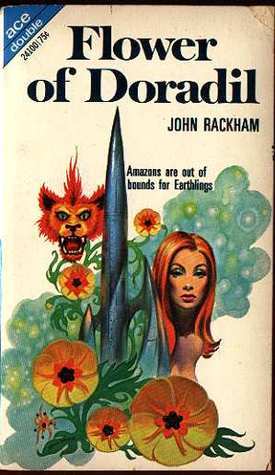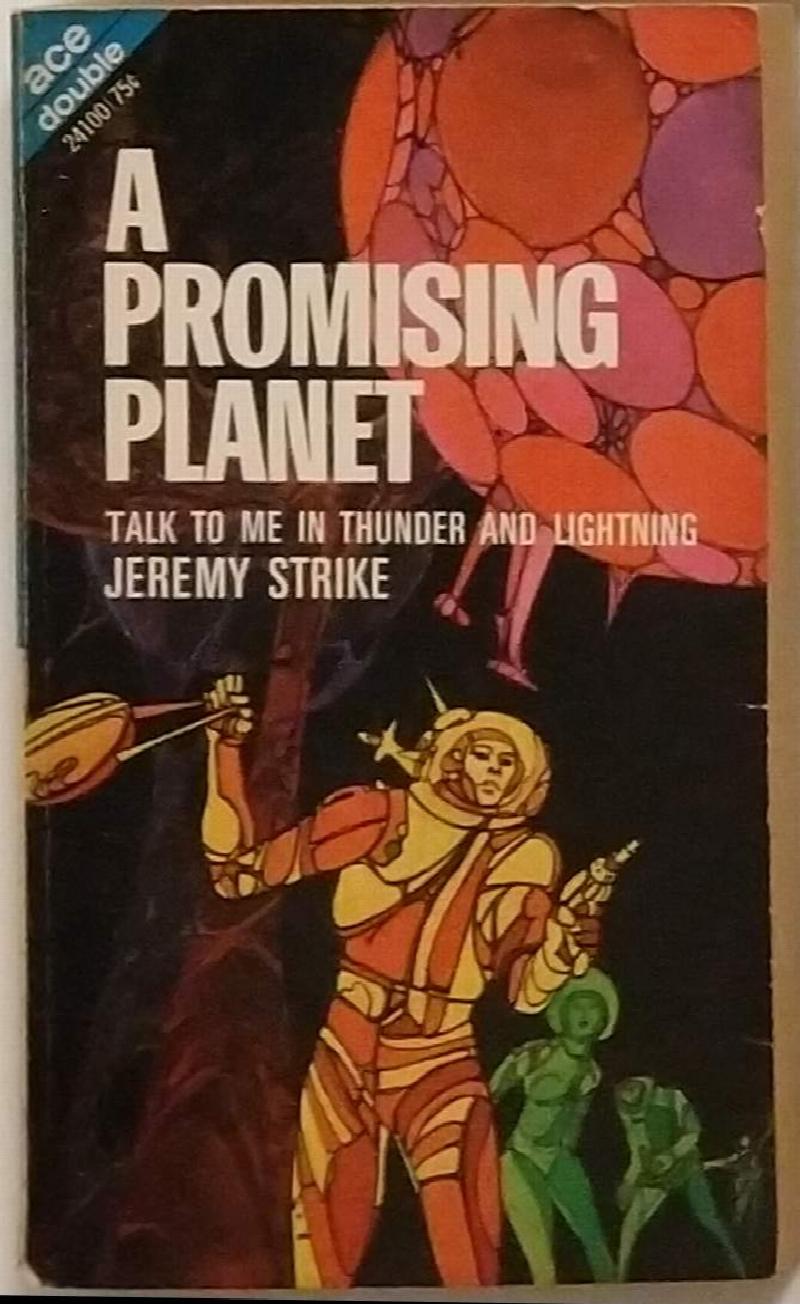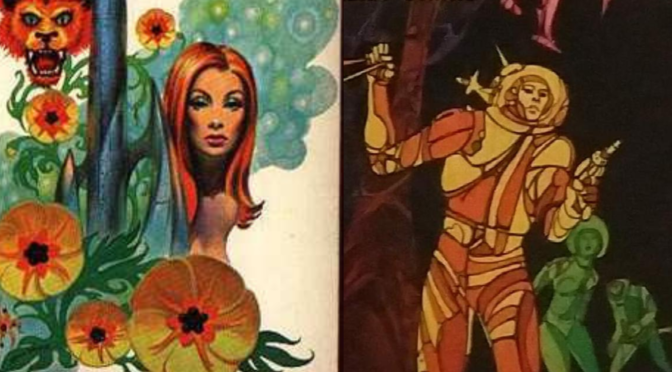
by Tonya R. Moore
The latest Ace Double features stories by two authors who both write under pseudonyms. John Rackham is the pen name of electrical engineer and author, John Thomas Phillifent, whose works include three novels from the popular American spy fiction universe series The Man from U.N.C.L.E. Phillifent was a prolific author, the majority of his works of science fiction published under the name John Rackham. The lesser-known Thomas Edward Renn’s singular novel was published under the name Jeremy Strike.
This Ace Double was my first encounter with the works of either author, yet I could not help but notice the distinct differences in literary experience and skill at the heart of each story.
Flower of Doradil by John Rackham

Rackham’s Flower of Doradil is an action-packed romp across a colorful alien continent. The premise of the novel, while not quite original, is quite promising. Claire Harper, a special agent from Earth, is dispatched to the planet Safari to investigate smuggling of a particular medicinal plant from the continent Adil. This is a dangerous operation, as Claire is merely the latest in a string of agents who have been dispatched to Adil and her predecessors have all seemingly vanished. Claire arrives on Adil and enlists two human men, Roger Lovell and Sam Coleman, as her guides. The action-science elements of Flower of Doradil do not disappoint.
This novel’s greatest flaw pertains to the male-female dynamics of this supposedly futuristic universe. Safari’s society is matriarchal, dominated by amazonian women. One might easily make the mistake of thinking this very forward-thinking of Rackham. Unfortunately, the populace of Safari are depicted as lesser evolved beings, savages perhaps. The supposedly wise alien queen, Sara—who for some reason is the spitting image of Claire—needs a Man, a human man, to correct her thinking and instruct her in the ways of ruling her own people.
The tone, which runs through the entirety of the story, is patronizing and despite the main character being a woman, clearly presents men as clearly superior beings to women. To be quite honest, Claire Harper’s point of view makes her seem more like a side character to Sam Coleman than the main character of the story.
All in all, Flower of Doradil is a competently written, albeit chaotic novel, worth reading, as long as you don’t take umbrage at the author’s male arrogance and chauvinism.
4 out of 5
A Promising Planet by Jeremy Strike

In contrast, Jeremy Strike’s A Promising Planet betrays the author’s literary inexperience. The premise of the novel seems intriguing enough. Bill Warden, a run-of-the-mill planetary surveyor arrives at a new planet and lays claim to it, despite the presence of its inhabitants. The natives, portrayed as naive or perhaps lesser-evolved beings, capture the hapless surveyor’s ship and present it as an offering to their god. This god turns out to be a real entity who communicates with Bill Warden. What follows is an almost comical exchange of knowledge and ideas.
What makes A Promising Planet interesting is the way it interrogates the existence and nature of god/divinity–at first.
Thrown into the mix is a woman named Sara. She works for some mega corporation in the planet hunting business and commands a rambunctious gaggle of crewmen. Random hijinks and minor disasters follow as Warden gains, to some degree, the god’s trust and as a result, the god shows him the ancient city where the race of beings who have long abandoned god and planet once lived. Other than as minor distractions from the humdrum plot, Sara and her crew seem to serve no significant purpose in the story.
The story meanders to a lackluster ending wherein the planet’s current denizens turn out to be mere captives of a false god. The being they worship is actually an ancient supercomputer with a god-complex. I would have loved to see a bolder interrogation and explanation of the divine. Instead, A Promising Planet clings to the predictable and ultimately falls flat, leaving this reader feeling somewhat bereft.
3 out of 5.

